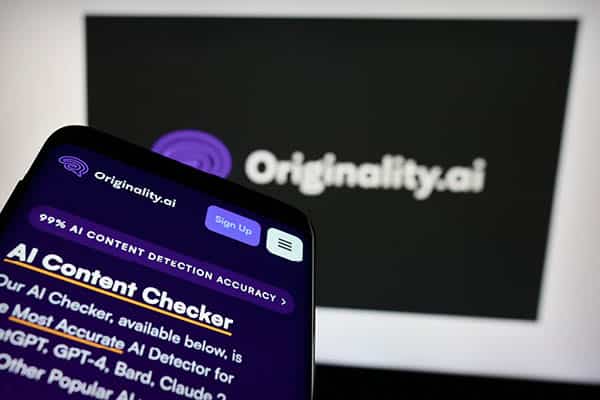The tools students can use for academic dishonesty have advanced, with greater lost learning consequences, according to an article in Education Next. Students can have entire essays crafted in a keystroke. In online classes, students can fake a syllabus’s worth of content, not just a handful of homework activities. Students can use a phone during class and access the entire Internet. A simple writing prompt can produce a full-fledged essay. Generative AI tools such as ChatGPT have exacerbated concerns about cheating.
The ubiquity and concealability of mobile devices with open access to the Internet make it difficult for schools to enforce academic integrity, even with official bans on them in place.
What can be done?
- Schools cannot control student motivations, but they can use incentives and policies to change behavior. Cheating must be made more difficult and disincentives provided to deter students.
- Some teachers are thinking outside the box to create cheating-proof assignments. Preventing students from cheating on tests is easiest — ban phones and computers. Require students to complete essays in person, on demand, and by hand. Sure, students can find ways to cheat during paper tests, but it’s more difficult. It’s harder to see a classmate’s test several desks away or slip in an answer key unnoticed. If teachers create multiple versions tests, answer keys won’t help cheating.
- Tests are the best method to discern students who have legitimately completed homework and daily activities and those who have cheated their way through the unit or semester. Students who cheat on practice problems bomb the test because they haven’t honestly learned the material.
- Teachers must actively monitor test-taking. Proctored environments at the post-secondary level reduced the prevalence of cheating, according to one small study. Students in proctored settings were more likely to state on surveys that cheating was unacceptable. Active monitoring and enforcement communicated to students that a teacher or school emphasized cheating was unethical, and students accepted the message.
- When students write essays outside of class, there are ways to check for AI usage. Ask a student you suspect of using ChatGPT to define a few of the “big words” they’d used in an essay. Editing history in Google Docs can expose a student who copied and pasted their essay. AI-checking software does exist, though often producing false positives.
- Many teachers are finding ways to assign homework that’s difficult to cheat on. Some assign readings or even pre-recorded lectures and explanations as homework and follow up with mini-quizzes the next day for accountability. For example, a teacher may assign a reading on the tale of Narcissus and open the next class with a quick, five-question quiz or a free-response question, allowing students to use notes they took. Or a teacher might use a video to show how to complete a physics problem, which students must then complete in class.
- It’s imperative students face consequences if they’re caught cheating. Remember the admonition of Alexis de Tocqueville that “when justice is more certain and more mild, it is more efficacious.” If students face drastic but unlikely consequences, motivation to cheat remains high.
- Honor codes are a common response to cheating. Honor codes are most effective when schools and teachers post the codes, teach about them, discuss them with students, refer to them, and ultimately enforce them. Don’t let them gather dust.
Combating cheating requires a multifaceted approach. Too many reasons to cheat exist to address them all. Schools and teachers must make it more difficult to cheat. Rethink homework; return to handwritten tests; emphasize end-of-course exams; ban phones, tablets, and laptops during assessment or work time; and implement and execute consequences when students are caught.
Some students will always try to behave dishonestly, but far more will follow the more arduous but preferable path of honestly learning the content.
Education Next





